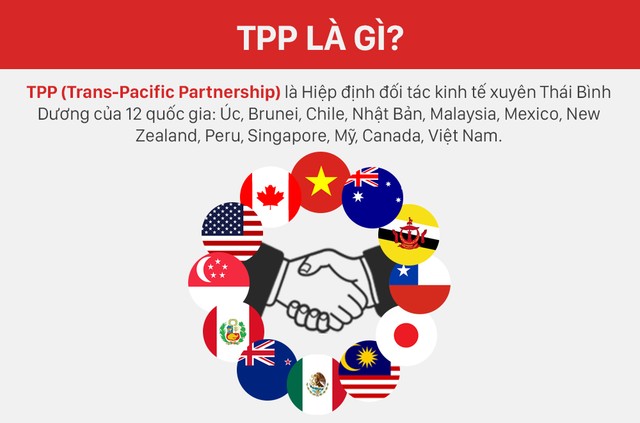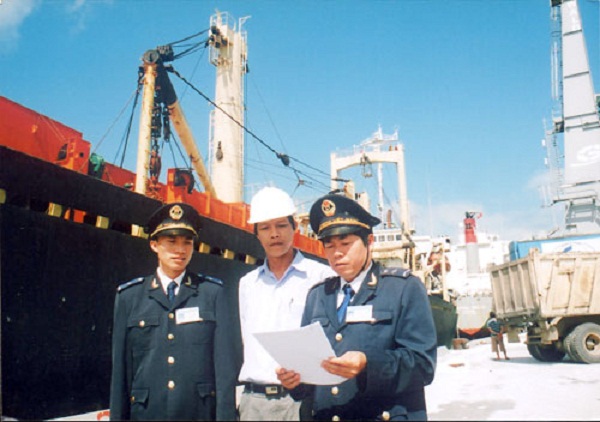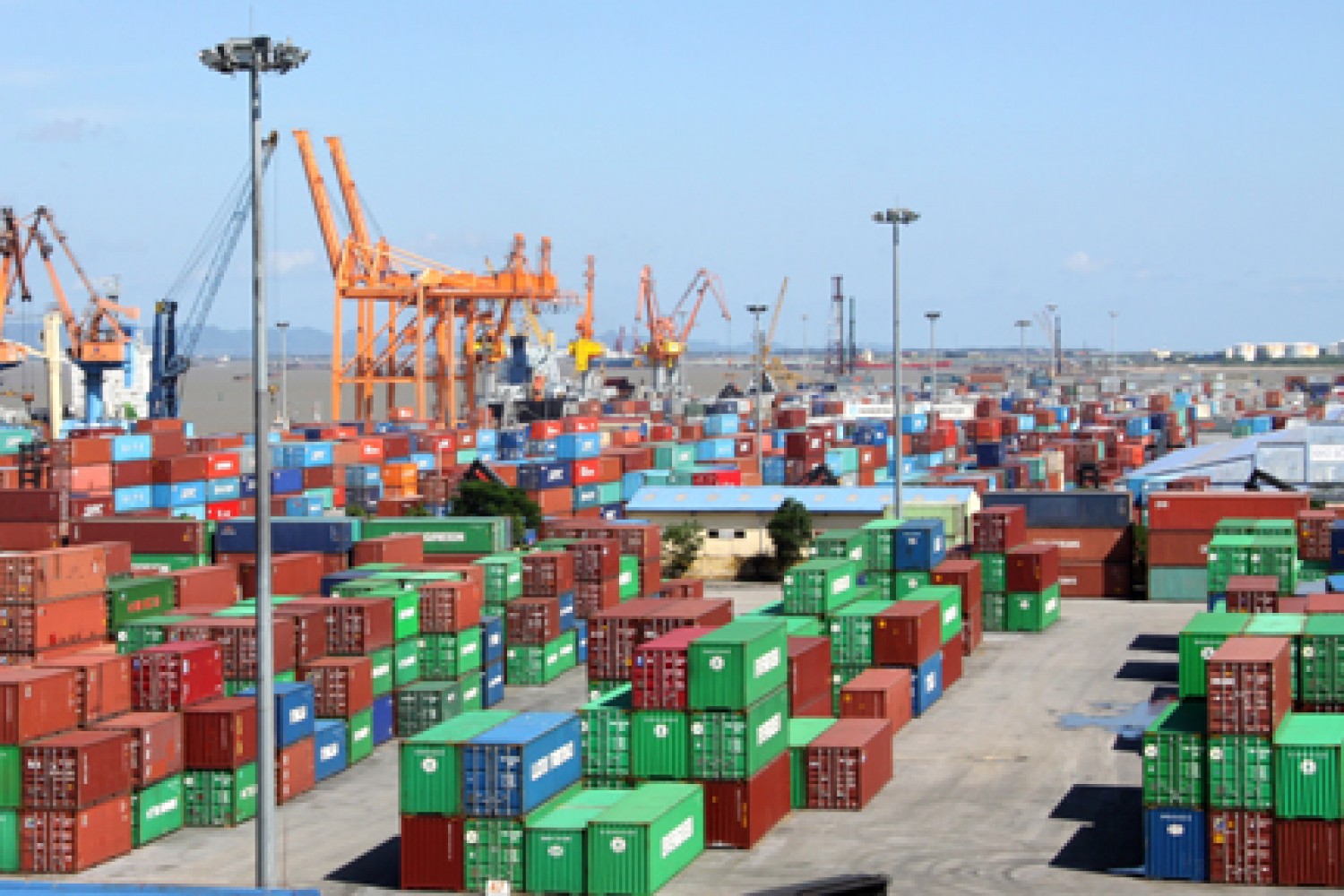TPP - Chapter 14 - Electronic Commerce
Chapter 14 of the TPP Agreement stipulates the scope and method of applying electronic commerce within the framework of the TPP Agreement.
CHAPTER 14
ELECTRONIC COMMERCE
Article 14.1: Definitions
For the purposes of this Chapter:
Information technology infrastructure includes servers and storage devices used for processing or storing information for commercial purposes;
Covered entity1 means:
(a) An investment project guaranteed under the provisions of Article 9.1 (Definitions);
(b) An investor of a Party as defined in Article 9.1 (Definitions) but excluding an investor making an investment in a financial institution; or
(c) A service supplier of a Party as defined in Article 10.1 (Definitions),
but not including a "financial institution" or “cross-border financial service supplier of a Party” as defined in Article 11.1 (Definitions);
Digital product means computer programs, textual, video, image, or audio products, or other products that are digitally encoded and produced for commercial purposes or distribution, as well as products transmitted electronically; 2, 3
Electronic authentication means a process or action verifying the characteristics of a participant in an electronic information activity or transaction and a process or action ensuring the integrity of electronic information activities;
Electronic transmission of signals means an electronic transmission executed using electronic devices, including optoelectronic devices;
Personal information is any information, including data about an identified or identifiable individual, regarding personal characteristics;
Records and documents for trade management are forms issued or controlled by a Party requiring completion by or for the importer or exporter in relation to the importation or exportation of goods; and
Unsolicited commercial electronic message means an electronic message sent for commercial or marketing purposes to an electronic address without the recipient's consent or sent despite the recipient’s refusal through an internet service provider, or if permitted by the laws of each Party, such messages may also be sent via other telecommunications services.
Article 14.2: Scope and General Provisions
-
The Parties recognize the economic growth or opportunities brought by electronic commerce and the importance of legal frameworks that promote consumer trust in electronic commerce as well as the importance of avoiding unnecessary barriers to the exploitation and development of electronic commerce.
-
This Chapter applies to measures adopted or maintained by a Party affecting trade conducted by electronic means.
-
This Chapter does not apply to:
(a) Government procurement; or
(b) Information held or processed by or on behalf of a Party, or measures related to that information, including measures relating to its collection.
-
For greater certainty, measures affecting the supply and performance of services by electronic means shall comply with the obligations described in the relevant provisions of Chapter 9 (Investment), Chapter 10 (Cross-Border Trade in Services), and Chapter 11 (Financial Services), including the exceptions or non-conforming measures in this Agreement applied to those obligations.
-
For greater certainty, the obligations described in Article 14.4 (Non-discriminatory Treatment of Digital Products), Article 14.11 (Cross-Border Transfer of Information by Electronic Means), Article 14.13 (Location of Computing Facilities), and Article 14.17 (Source Code):
(a) are subject to the relevant exceptions and non-conforming measures described in Chapter 9 (Investment), Chapter 10 (Cross-Border Trade in Services), and Chapter 11 (Financial Services); and
(b) will be interpreted in conjunction with relevant provisions of this Agreement.
- The obligations described in Article 14.4 (Non-discriminatory Treatment of Digital Products), Article 14.11 (Cross-Border Transfer of Information by Electronic Means), and Article 14.13 (Location of Computing Facilities) do not apply to non-conforming aspects of measures adopted or maintained pursuant to Article 9.11 (Non-Conforming Measures), Article 10.7 (Non-Conforming Measures), or Article 11.10 (Non-Conforming Measures).
Article 14.3: Customs Duties
-
No Party shall impose customs duties on electronic transmissions, including content transmitted electronically between a person of one Party and a person of another Party.
-
For greater certainty, the provisions in Paragraph 1 do not preclude a Party from imposing internal taxes, fees, or other charges on content transmitted electronically, provided that such taxes, fees, or charges are applied in a manner consistent with this Agreement.
Article 14.4: Non-Discriminatory Treatment of Digital Products
-
No Party shall accord less favorable treatment to digital products created, produced, published, contracted for sale, commissioned, or first made available on commercial terms within the territory of another Party, or to digital products whose author, performer, producer, developer, or rights holder is a person of another Party, than it accords to other like digital products.4
-
The provisions of Paragraph 1 do not apply to the extent of their inconsistency with the rights and obligations in Chapter 18 (Intellectual Property).
-
The Parties understand that this Article does not apply to subsidies or grants provided by a Party, including government-supported loans, guarantees, and insurance.
-
This Article does not apply to broadcasting.
Article 14.5: Domestic Legal Frameworks for Electronic Transactions
-
Each Party shall maintain a legal framework governing electronic transactions consistent with the principles of the UNCITRAL Model Law on Electronic Commerce 1996 or the United Nations Convention on the Use of Electronic Communications in International Contracts, done at New York, November 23, 2005.
-
Each Party shall endeavor to:
(a) Avoid unnecessary regulatory burdens on electronic transactions; and
(b) Facilitate the input of interested persons in the development of its legal framework for electronic transactions.
Article 14.6: Electronic Authentication and Electronic Signatures
-
Except in circumstances otherwise provided for under each Party's laws, a Party shall not deny the legal validity of a signature solely on the grounds that the signature is in electronic form.
-
No Party shall adopt or maintain measures for electronic authentication that:
(a) Prohibit parties to an electronic transaction from mutually determining the appropriate authentication methods for that transaction; or
(b) Prevent parties to an electronic transaction from having the opportunity to prove to judicial or administrative authorities that their transaction complies with any legal requirements with respect to authentication.
-
Consistent with Paragraph 2, each Party may require that, for a particular category of transactions, the method of authentication meets certain performance standards or is certified by an authority accredited in accordance with its law.
-
The Parties shall encourage the compatibility of electronic authentication.
Article 14.7: Online Consumer Protection
-
The Parties recognize the importance of adopting and maintaining transparent and effective measures to protect consumers from fraudulent and deceptive commercial practices as referred to in Article 16.7.2 (Consumer Protection) when they engage in electronic commerce.
-
Each Party shall adopt or maintain consumer protection laws to proscribe fraudulent and deceptive commercial practices causing harm or potential harm to consumers participating in electronic commerce.
-
The Parties recognize the importance of cooperation between their respective consumer protection agencies or relevant bodies on activities related to cross-border electronic commerce to enhance consumer benefits. The Parties affirm that cooperation under Article 16.7.5 and Article 16.7.6 (Consumer Protection) includes cooperation related to electronic commerce activities on the Internet.
Article 14.8: Personal Information Protection5
-
The Parties recognize the economic and social benefits of protecting the personal information of users engaging in electronic commerce and the contribution that such protection makes to enhancing consumer confidence in electronic commerce.
-
Each Party shall adopt or maintain a legal framework that provides for the protection of the personal information of users engaged in electronic commerce. In the development of this legal framework, each Party should take into account principles and guidelines of relevant international bodies.6
-
Each Party shall endeavor to adopt non-discriminatory practices in protecting users engaged in electronic commerce from violations of privacy by entities within its jurisdiction.
-
Each Party shall publish information on the personal information protections it provides to users of electronic commerce, including:
(a) How individuals can pursue remedies; and
(b) How business can comply with legal requirements.
- Recognizing that Parties may take different legal approaches to protect personal information, each Party shall facilitate mechanisms to promote compatibility between these different regimes. These mechanisms may include recognition of regulatory outcomes, whether unilateral or via mutual recognition arrangements, or broader international frameworks. The Parties should exchange information on these mechanisms as they are applied in their respective jurisdictions and seek ways to extend these arrangements or find other appropriate arrangements to promote compatibility.
Article 14.9: Paperless Trading
Each Party shall endeavor to:
(a) Make trade administration documents available to the public in electronic form; and
(b) Accept trade administration documents submitted electronically as the legal equivalent of the paper version of those documents.
Article 14.10: Principles on Access to and Use of the Internet for Electronic Commerce
Subject to applicable policies, laws, and regulations, the Parties recognize the benefits to consumers in their territory from:
(a) Having access to and use of services and applications of a consumer's choice available on the Internet subject to reasonable network management7;
(b) Connecting end-user devices of a consumer's choice to the Internet, provided that such devices do not harm the network; and
(c) Having access to information on the network management practices of their Internet access service supplier.
Article 14.11: Cross-Border Transfer of Information by Electronic Means
-
The Parties recognize that each Party may have its own regulatory requirements concerning the transfer of information by electronic means.
-
Each Party shall allow the cross-border transfer of information by electronic means, including personal information, when this activity is for the conduct of the business of a covered person.
-
Nothing in this Article shall prevent a Party from adopting or maintaining measures inconsistent with Paragraph 2 to achieve a legitimate public policy objective, provided that the measure:
(a) Is not applied in a manner which would constitute a means of arbitrary or unjustifiable discrimination or a disguised restriction on trade; and
(b) Does not impose restrictions on transfers of information greater than are required to achieve the objective.
Article 14.12: Internet Interconnection Charge Sharing
The Parties recognize that suppliers seeking international Internet interconnection arrangements may negotiate with each other commercially. These obligations may include negotiations on compensation arrangements for the establishment, operation, and maintenance of those interconnection arrangements.
Article 14.13: Location of Computing Facilities
-
The Parties recognize that each Party may have its own regulatory requirements regarding the use of computing facilities, including requirements to ensure the security and confidentiality of communication.
-
No Party shall require a covered person to use or locate computing facilities in the territory of that Party as a condition for conducting business in that territory.
-
Nothing in this Article shall prevent a Party from adopting or maintaining measures inconsistent with Paragraph 2 to achieve a legitimate public policy objective, provided that the measure:
(a) Is not applied in a manner which would constitute a means of arbitrary or unjustifiable discrimination or a disguised restriction on trade; and
(b) Does not impose requirements on the use or location of computing facilities greater than are required to achieve the objective.
Article 14.14: Unsolicited Commercial Electronic Messages8
- Each Party shall adopt or maintain measures regarding unsolicited commercial electronic messages that:
(a) Require suppliers of unsolicited commercial electronic messages to facilitate the ability of recipients to prevent ongoing reception of those messages;
(b) Require that commercial electronic messages be sent with the consent of the recipient, as provided for under each Party's law; or
(c) Otherwise provide for the minimization of unsolicited commercial electronic messages.
-
Each Party shall provide for the enforcement of its measures adopted or maintained pursuant to Paragraph 1.
-
The Parties shall endeavor to cooperate in appropriate cases of mutual concern regarding the regulation of unsolicited commercial electronic messages.
Article 14.15: Cooperation
Recognizing the global nature of electronic commerce, the Parties shall endeavor to:
(a) Work together to assist small and medium-sized enterprises in overcoming obstacles in the use of electronic commerce;
(b) Share information and experiences on regulations, policies, enforcement, and compliance regarding electronic commerce, including:
(i) Personal information protection;
(ii) Online consumer protection, including methods of providing redress for consumers and ways to build consumer confidence;
(iii) Unsolicited commercial electronic messages;
(iv) Security in electronic communications;
(v) Authentication; and
(vi) E-government;
(c) Share information and experiences on participation by consumers respectively in goods and services provided online between the Parties;
(d) Actively participate in regional and multilateral fora to promote the development of electronic commerce; and
(e) Encourage private sector participation in efforts to develop and implement self-regulatory measures that foster the use of electronic commerce, including promoting codes of conduct, model contracts, will platforms, and ensuring compliance mechanisms.
Article 14.16: Cooperation on Information Security
The Parties recognize the importance of:
(a) Building the capacity of government bodies responsible for computer security incident response; and
(b) Using existing cooperation mechanisms to address and limit the damaging effects of harmful intrusion or dissemination of malicious code that affect the electronic networks of both Parties.
Article 14.17: Source Code
-
No Party shall require the transfer of or access to source code of software owned by a person of another Party, as a condition for the import, distribution, sale or use of such software or of products containing such software, in its territory.
-
For the purposes of this Article, software subject to Paragraph 1 is limited to mass-market software or products containing such software and does not include software used for critical infrastructure.
-
Nothing in this Article shall prevent:
(a) The incorporation or implementation of terms and conditions related to the provision of source code in commercially negotiated contracts; or
(b) A Party from requiring the modification of software, provided that the requirement is consistent with this Agreement and is necessary to comply with its laws and regulations.
- This Article shall not be construed as affecting the rights and obligations of the Parties relating to patents as contained in their respective patent regimes, including judicial proceedings regarding patents or measures to address the unauthorized disclosure of proprietary information consistent with a Party’s laws and the practice of the Party.
---1Note: This section has multiple footnotes which should be addressed according to the referenced materials or terms specified in the actual legal document.
Article 14.18: Dispute Resolution
-
For the measures currently being applied, Malaysia is not required to adhere to the dispute resolution principles specified in Article 28 (Dispute Resolution) regarding its obligations set forth in Article 14.4 (Non-Discriminatory Treatment of Digital Products) and Article 14.11 (Cross-Border Transfer of Information by Electronic Means) for a term of two years from the date this Agreement comes into effect in Malaysia.
-
For the measures currently being applied, Vietnam is not required to adhere to the dispute resolution principles specified in Article 28 (Dispute Resolution) regarding its obligations set forth in Article 14.4 (Non-Discriminatory Treatment of Digital Products), Article 14.11 (Cross-Border Transfer of Information by Electronic Means), and Article 14.13 (Location of Computing Facilities) for a term of two years from the date this Agreement comes into effect in Vietnam.
Notes
-
For Australia, the scope does not include credit reporting agencies.
-
For clarification, digital products do not include the digital form of financial instruments, including money.
-
The definition of digital products is not intended to reflect the position of any Party in determining whether the trade of digital products through electronic transmission is a service or goods trade.
-
For clarification, if a digital product of a non-Party to this Agreement is "like a digital product," that product will be subject to Article 14.4.1 for "like digital products."
-
Brunei Darussalam and Vietnam are not required to apply this Article before the date these Parties implement their legal framework that includes regulations on the protection of personal data of e-commerce operators.
-
For clarification, a Party to this Agreement may comply with the obligation set forth in this paragraph by implementing or maintaining measures such as comprehensive privacy policies, personal information or personal data protection laws, sector-specific privacy laws, or enforcement regulations of voluntary commitments by businesses related to personal privacy.
-
The Parties understand that an Internet access service provider that provides subscribers with certain content exclusively will not implement policies contrary to this principle.
-
Brunei Darussalam is not required to apply the provisions of this Article before the date it implements its legal framework related to unsolicited electronic commercial messages.
Table of Contents
TPP - Chapter 01 - General Definitions
TPP - Chapter 02 - National Treatment and Market Access for Goods
TPP - Chapter 03 - Rules of Origin and Procedures
TPP - Chapter 04 - Textile and Apparel Goods
TPP - Chapter 05 - Customs Administration and Trade Facilitation
TPP - Chapter 06 - Trade Remedies
TPP - Chapter 07 - Sanitary and Phytosanitary Measures
TPP - Chapter 08 - Technical Barriers to Trade
TPP - Chapter 10 - Cross-Border Trade in Services
TPP - Chapter 11 - Financial Services
TPP - Chapter 12 - Temporary Entry for Business Persons
TPP - Chapter 13 - Telecommunications
TPP - Chapter 14 - Electronic Commerce
TPP - Chapter 15 - Government Procurement
TPP - Chapter 16 - Competition Policy
TPP - Chapter 17 - State-Owned Enterprises and Designated Monopolies
TPP - Chapter 18 - Intellectual Property
TPP - Chapter 20 - Environment
TPP - Chapter 21 - Cooperation and Capacity Building
TPP - Chapter 22 - Competitiveness and Business Facilitation
TPP - Chapter 23 - Development
TPP - Chapter 24 - Small and Medium-Sized Enterprises
TPP - Chapter 25 - Regulatory Coherence
TPP - Chapter 26 - Transparency and Anti-Corruption
TPP - Chapter 27 - Administrative and Institutional Provisions
TPP - Chapter 28 - Dispute Settlement
TPP - Chapter 29 - Exceptions and General Provisions
- Key word:
- Electronic Commerce
- TPP
- TPP Agreement
- Cases of land rent exemption and reduction under the latest regulations in Vietnam
- Economic infrastructure and social infrastructure system in Thu Duc City, Ho Chi Minh City
- Regulations on ordination with foreign elements in religious organizations in Vietnam
- Increase land compensation prices in Vietnam from January 1, 2026
- Determination of land compensation levels for damage during land requisition process in Vietnam
- Who is permitted to purchase social housing according to latest regulations in Vietnam?
-

- TPP - Chapter 01 - General Provisions and Definitions
- 12:10, 11/07/2024
-

- TPP - Chapter 05 - Customs Administration and ...
- 12:10, 11/07/2024
-

- TPP - Chapter 04 - Textile and apparel goods
- 12:10, 11/07/2024
-

- TPP - Chapter 08 - Technical Barriers to Trade
- 12:10, 11/07/2024
-

- TPP - Chapter 07 - Sanitary and Phytosanitary ...
- 12:10, 11/07/2024
-

- Notable new policies of Vietnam effective as of ...
- 16:26, 11/04/2025
-
.Medium.png)
- Notable documents of Vietnam in the previous week ...
- 16:21, 11/04/2025
-
.Medium.png)
- Notable documents of Vietnam in the previous week ...
- 16:11, 02/04/2025
-
.Medium.png)
- Notable new policies of Vietnam to be effective ...
- 16:04, 02/04/2025
-
.Medium.png)
- Notable new policies of Vietnam effective from ...
- 14:51, 21/03/2025
 Article table of contents
Article table of contents
